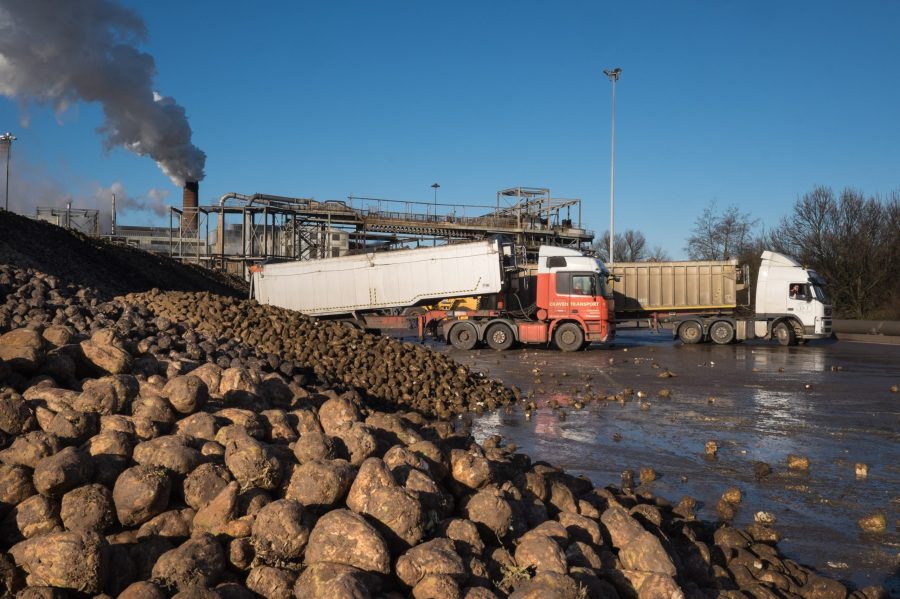 Up to 4000 people will soon be able to take advantage of training courses to become HGV drivers, as part of a package of measures announced by the government to ease temporary supply chain pressures in food haulage industries, brought on by the pandemic and the global economy rebounding around the world. Charlotte Cunningham reports.
Up to 4000 people will soon be able to take advantage of training courses to become HGV drivers, as part of a package of measures announced by the government to ease temporary supply chain pressures in food haulage industries, brought on by the pandemic and the global economy rebounding around the world. Charlotte Cunningham reports.
The Department for Education is investing up to £10M to create new skills bootcamps to train up to 3000 more people to become HGV drivers. The free, short, intensive courses will train drivers to be road ready and gain a category C or category C&E licence, helping to tackle the current HGV driver shortage. An additional 1000 people are expected to be trained through courses accessed locally and funded by the government’s adult education budget.
Fuel tanker drivers need additional safety qualifications, which the government says it will work with industry to ensure drivers can access as quickly as possible.
To help make sure new drivers can be road ready as quickly as possible, the Department for Transport (DfT) have also agreed to work with Driver and Vehicles Standards Agency (DVSA) to ensure that tests will be available for participants who have completed training courses as soon as possible.
The Ministry of Defence (MOD) is also announcing today the immediate deployment of their Defence Driving Examiners (DDEs) to increase the country’s testing capacity. MOD examiners will work alongside DVSA examiners, providing thousands of extra tests over the next 12 weeks.
Alongside this, 5000 HGV drivers will be able to come to the UK for 3 months in the run-up to Christmas, providing short-term relief for the haulage industry. A further 5500 visas for poultry workers will also be made available for the same short period, to avoid any potential further pressures on the food industry during this period.
Recruitment for additional short-term HGV drivers and poultry workers will begin in October and these visas will be valid until 24 December 2021. UK Visas and Immigration (UKVI) are preparing to process the required visa applications, once made, in a timely manner.
However, we want to see employers make long term investments in the UK domestic workforce instead of relying on overseas labour to build a high-wage, high-skill economy.
Visas will not be the long term solution, and reform within the industry is vital. That’s why the government continues to support the industry in solving this issue in the long term through improved testing and hiring, with better pay, working conditions and diversity.
Package of measures
“This package of measures builds on the important work we have already done to ease this global crisis in the UK, and this government continues to do everything we can to help the haulage and food industries contend with the HGV driver shortage,” said transport secretary, Grant Shapps.
“We’re acting now but the industries must also play their part with working conditions continuing to improve and the deserved salary increases continuing to be maintained in order for companies to retain new drivers.
“After a very difficult 18 months, I know how important this Christmas is for all of us and that’s why we’re taking these steps at the earliest opportunity to ensure preparations remain on track.
“Separately, the government is also bringing in legislation to allow delegated driving examiners at the three emergency services and the MOD to be able to conduct driving tests for one another. This will give the emergency services greater flexibility and help increase the number of tests DVSA examiners can provide HGV examiners.
“The government will also provide funding for both medical and HGV licences for any adult who completes an HGV driving qualification accessed through the Adult Education Budget in academic year 2021/22. Previously, adults who took these qualifications had to pay for their own licences. This change will be backdated and applied to anyone who started one of these qualifications on or after August 1st 2021.”




